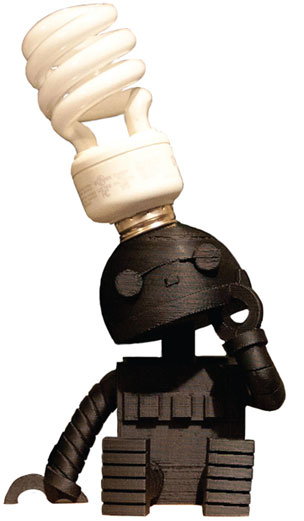 Tiny Chemo Factories: A novel cancer-fighting strategy, developed by Marc Ostermeier, a chemical and biomolecular engineering professor, shows promising early lab results. Here’s how it works: A protein switch inside cells instructs cancer cells themselves to produce their own anti-cancer medication. The hope: Cancer cells will become their own tiny chemotherapy factories, self-destructing.
Tiny Chemo Factories: A novel cancer-fighting strategy, developed by Marc Ostermeier, a chemical and biomolecular engineering professor, shows promising early lab results. Here’s how it works: A protein switch inside cells instructs cancer cells themselves to produce their own anti-cancer medication. The hope: Cancer cells will become their own tiny chemotherapy factories, self-destructing.
Robot Red Carpet: Enter da Vinci surgical robot, stage right. In the first-ever Robot Film Festival in Manhattan, a short whimsical film (see video below) by graduate students in the Whiting School’s Laboratory for Computational Sensing and Robotics (LCSR) won the Audience Award. The plot: Students use the da Vinci to play the old-fashioned game Operation. “Robots get way too much bad press,” says Kelleher Guerin, a creator of the video, of the robot’s superior fine motor skills.
Tweet Talk: Two computer scientists, Assistant Research Professor Mark Dredze and PhD candidate Michael J. Paul, have sorted through 2 billion public Tweets to uncover patterns involving allergies, flu, insomnia, cancer, obesity, depression, pain, and other ailments. Their question: Can you use public Twitter posts to ferret out important public health trends? The answer: yes. Example: Following Twitter enabled researchers to track trends by time and place, such as when the allergy and flu seasons peaked in various parts of the country, and the medicines people used to treat them.




